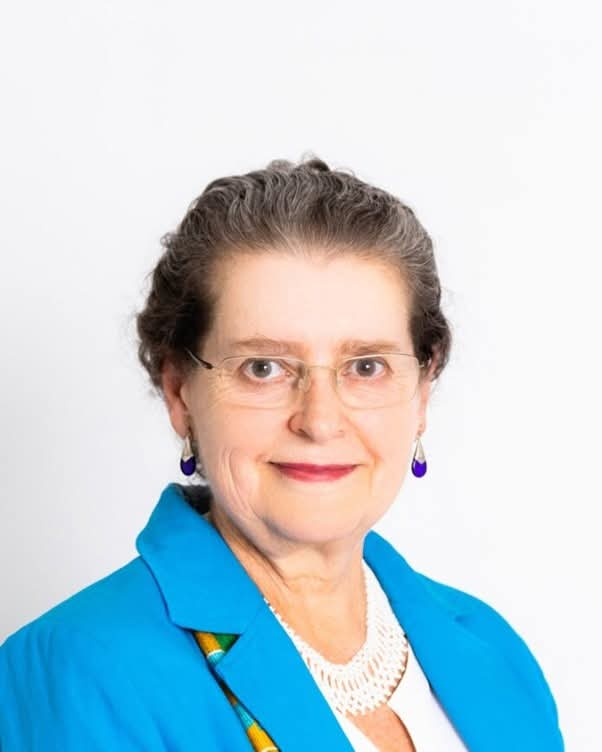Featured Scientist: Prof Irvy (Igle) Gledhill
Prof Igle Gledhill is an Honorary Adjunct Professor of Flow Physics in the School of Mechanical, Industrial and Aeronautical Engineering at the University of the Witwatersrand. Her fields of expertise in physics are Computational Fluid Dynamics and Applied Computational Physics.
Notable awards and accomplishments
- Honorary Doctorate (D.Sc. honoris causa) from Rhodes University for services to physics (2024).
- Fellow and President of the South African Institute of Physics (2013-2015).
- National Science and Technology Forum / Science Diplomacy Capital for Africa Award (2024) for advancing science diplomacy in Africa.
- CSIR Defencetek Award for Transformation (2004) and Career Achievement Award (2009).
- Leading role in establishing the IUPAP Working Group on Physics for Climate Change Action and Sustainable Development.
- Vice-President for Membership and Development, IUPAP (International Union of Pure and Applied Physics).
- Vice-President for Network of African Science Academies.
Brief bio
Prof Gledhill’s journey began in Makhanda (formerly Grahamstown), where her deep appreciation for community was shaped. She completed her Honours degree at Rhodes University and her doctorate at the University of Natal (now UKZN). She then pursued postdoctoral research in California at UCLA and Stanford, where she worked with Oscar Buneman, a pioneer of plasma simulation.
Returning to South Africa, she spent three decades at the Council for Scientific and Industrial Research (CSIR), contributing to a wide range of fields including aerodynamics, HIV/AIDS, tuberculosis, and ocean engineering. Her work has always carried a transdisciplinary dimension, spanning across disciplines and continents. She has also been working toward a fairer and more inclusive research environment by being a key advocate for women in physics and in science.
Peek in the Lab
At Wits University, Prof Gledhill collaborates with partners on accelerating aerodynamics research. Alongside this, she is synthesising developments in physics for climate and sustainability science, with a particular focus on how physics can be applied to climate challenges in Southern Africa. She is also a co-founder of the IUPAP Working Group on Physics for Climate Change Action and Sustainable Development.
Why her work matters
Through her international work with IUPAP, Prof Gledhill highlights how areas such as non-linear dynamics and climate modelling can inform better early warning systems tools that could strengthen our resilience to extreme weather events.
Taking on current issues in the field
Prof Gledhill acknowledges the challenge of translating theoretical physics into practical tools for climate change adaptation. She stresses that “Physics has a crucial role to play” but also points to the pressing need to overcome data scarcity in our fields of study. Through the IUPAP Working Group on climate change, she is connecting scientists across the globe to address these challenges collaboratively.
Ethical responsibility
“We must not fool ourselves about the realities of our changing world” Prof Gledhill says. For her, the ethical responsibility of scientists is clear: to use their expertise in developing actionable solutions that protect both people and the planet.
Recommended readings
- Prof Gledhill’s work on computational fluid dynamics and its applications in climate science.
- IUPAP’s report: Physics for Climate Change Action and Sustainable Development.
Quote she lives by
“The first principle is that you must not fool yourself and you are the easiest person to fool.” – Richard Feynman
Final thoughts
For Prof Gledhill, science is about asking the right questions and working together to find answers. Collaboration is vital, but so too are the individual contributions of scientists-the careful thinking and insights that each researcher brings. In her words: “We are part of a bigger picture, and every small contribution matters.”
View Prof Gledhill's interview on the strategy behind the formation of NITheCS

